
Why Does Your Yard Need Olive Trees?
Published: 18/07/2022 | Updated: 29/03/2023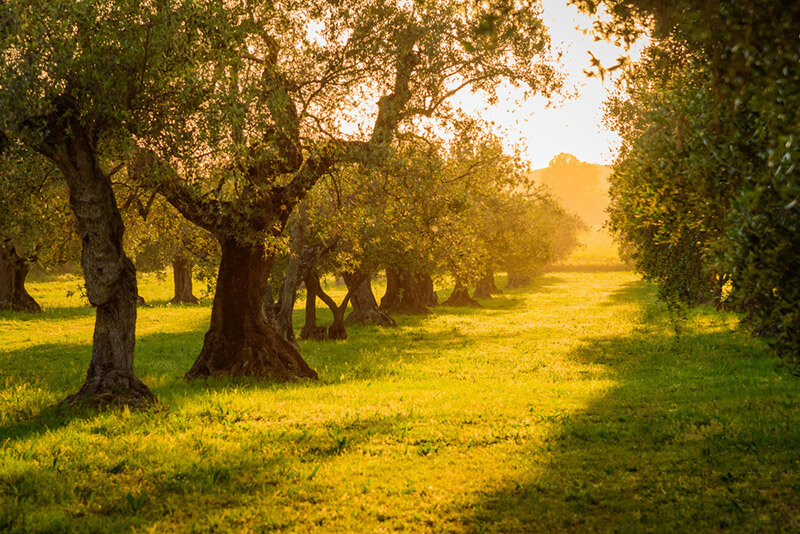
Picking the right plants for your yard is a crucial element in not only how you choose to design it, but also, how sustainable and easy to maintain it will be! Nowadays it’s becoming increasingly important to design a yard with sustainability in mind so why not start with an olive tree?


Drought-tolerant plants are increasing in popularity which is why our ShrubHub experts are always recommending growing them in your yard. They are low-maintenance in nature, resist harsh weather conditions, and require little watering, unfortunately, one drought-tolerant plant is extremely overlooked, the olive tree.
Olive trees date back to ancient Greece and have been cultivated for over 6000 years which is why we need to learn from our ancestors and stop overlooking these majestic olive trees.
Olives are not just a delicious pizza topping or a healthy oil to add flavor to your dishes! Olive trees to be more exact can play a crucial role in not only making your yard beautiful and packed full of nutrients but also sustainable and easy to maintain!
In this guide, we will be discussing the benefits of olive cultivation and growing olive trees in your yard. Our ShrubHub experts know all there is about how to care for them to ensure they thrive and bear fruit which is why we are here to help you transform your yard into a Mediterranean wonder with these beautiful trees!
The Benefits Of Planting Olive Trees
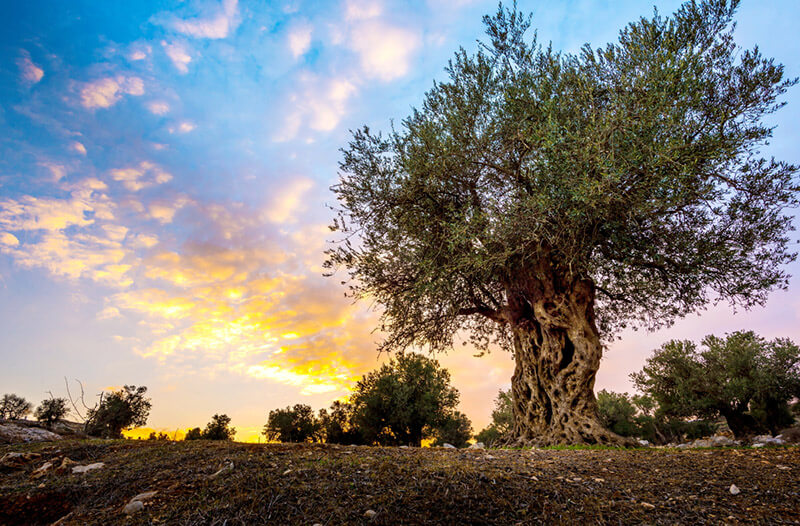
Olive trees have been around since the beginning of time, they were seen as a symbol of wisdom, a peace offering, and olive branches were offered as a prize for the winners of the ancient Olympic Games.
The famous saying extending an olive branch stems from the fact that olive trees are a known symbol of goodwill and signify peace.
Cultivated in the eastern Mediterranean region for thousands of years, the ancient Greeks knew the significance and benefit of olive trees which is why should learn from their wisdom and adapt it to modern-day times thousands of years later!
1. Olive Trees Are Very Durable
Olive trees can live and thrive for thousands of years, it has been scientifically proven that many olive trees in the Mediterranean region are as old as 2000 years! Aged olive trees are also virtually indestructible and can survive in even the harshest conditions, from temperature fluctuations to exposure to the most serious pests!
The roots of an olive tree are extremely sturdy and vigorous that they can regenerate themselves even in the event of fires, frost, and even if the plant catches a disease! This makes the tree's roots practically indestructible!
2. They Produce An Abundance Of Fruit
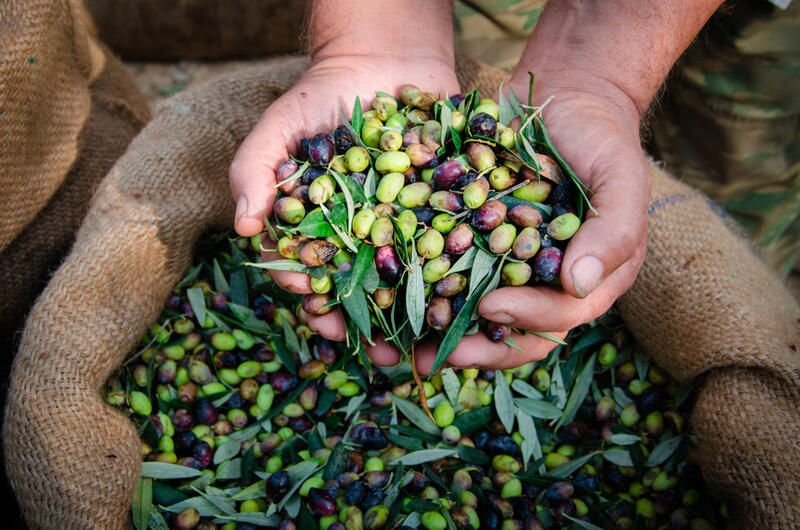
Olive trees begin to fruit at around 5 years of age and continue olive production for many years to follow. It was even proven that a 1,600-year-old tree in Croatia still bears an abundance of fruit today!
You can harvest around 400 pounds of olives per year from mature olive trees, and depending on the tree's age, older ones can produce even more than that.
Harvesting olives contain a variety of benefits for our health, they are packed full of antioxidants, healthy fats, and fiber which makes olives perfect for a very healthy balanced diet.
Don’t forget you can even make delicious olive martinis, shaken, not stirred!
3. You can Make Homemade Olive Oil
There are many uses for olive fruit, not only is it a delicious addition to any dish but you can also make it into homemade olive oil which has a variety of benefits.
Olive oil is not only used for healthier cooking but is also a great organic alternative to hair rejuvenating and skin care products. This is why global olive oil production is key for the beauty industry. Next time you take a shower use olive oil on your hair to add shine and stimulate growth!
Olive oil production is easier than you might think! To make the perfect olive oil all you need is thoroughly washed freshly harvested olives. Remove their seeds and mash the olives using a clean mallet, transfer the mashed olives into a tall glass and add water to the paste.
Use an immersion blender to combine the mixture then strain it using a cheesecloth, add weight over the bundle this can be a wooden block, and let it sit. Allow the liquid to drain and in a few hours, there you have it olive oil!
4. Ancient Olive Trees are Drought-Tolerant
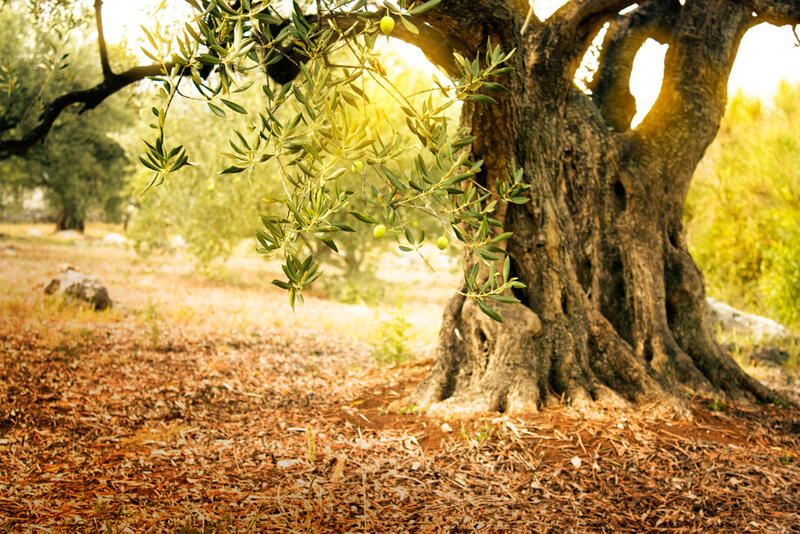
Planting drought-tolerant plants in your garden have a variety of benefits which is why olive trees are the perfect option for a drought-tolerant yard. Due to their nature, most olive trees are very easy to maintain and do not need to be watered often.
Even if you are located in some of the hotter states, olive trees will thrive in your yard, and you can keep your water bills down due to their ability to thrive off very little water.
5. They Give life And Color Year-Round
One amazing benefit of olive trees is that they are evergreen and do not undergo dramatic changes during the spring and fall as most trees do.
The cool weather and winter wind can blow away other leaves, but olive trees remain green and lush which adds color and texture to your yard throughout the whole year!
6. They Purify The Air
Olive trees are also great for the environment as they purify the air from toxic carbon dioxide emissions and greenhouse gases and turn them into oxygen which makes the air in your surrounding environment much cleaner and healthier to breathe in.
Currently, Spain produces around 45% of the world's olives population. Planting olive groves have a profound effect on climate change as olive trees absorb a considerable amount of harmful CO2 emissions.
You can also grow potted dwarf olive trees indoors for air purification, they also look beautiful near a windowsill or as a coffee table centerpiece.
How To Plant and Care For Your Olive Tree
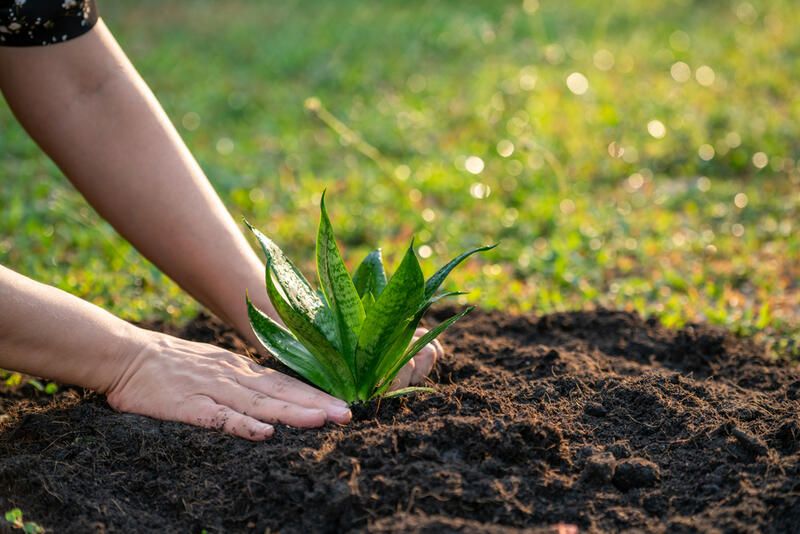
If you are located in a naturally Mediterranean climate like Southern California, your yards are in the perfect condition for growing olive trees as they are already acclimatized to your local weather conditions.
Don’t worry if you are not as long as you follow these steps on how to grow and care for your olive trees they will thrive under any conditions!
1. How to Plant An Olive Tree
Springtime is the peak time for planting your seedlings, too much heat or cold could be damaging for newly planted young trees, the frost during their first winter could be very damaging, and overheating could cause the seedlings dehydration.
They require plenty of full suns so make sure to plant them in an area in your yard that receives plenty of sunlight for up to 8 hours a day. Make sure to avoid planting them in areas in your yard that are susceptible to water accumulation as olive trees do not survive waterlogged soil.
When planting your olive tree seedlings dig a hole that allows the top of your tree’s root to slightly sit above ground level, it’s important to note that adding compost to your soil will only harm your newly planted trees as they need to be able to fully adapt to your soil conditions to ensure sturdy and indestructible roots.
Make sure to plant your olive tree in soil that is not heavily clay based to avoid trapping moisture and rotting your roots. Olive trees are mostly self-pollinating but if you want them to yield more fruit try planting another fruiting tree close by for cross-pollination to take place.
2. How To Care For And Prune Your Young Olive Trees
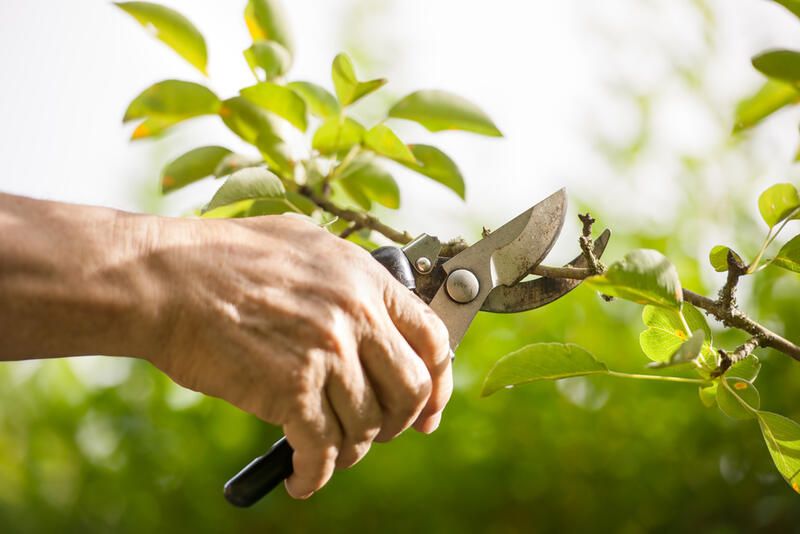
Once your olive trees are fully established, they are extremely drought-tolerant and can go for very long periods without water, however, during their growing phase, it is important to note that regular watering during hot summers is important in the early growth phases.
During the spring and summer seasons, freshly planted olive trees need watering two to three times a week, you can use a drip irrigation system for this or just hose them down. Just remember to water older trees every few weeks.
During the autumn and winter seasons, you can rely on rainfall as supplemental watering and completely cut back on watering your olive trees altogether. Trees grown in heavily fertilized soil may grow poorly as fertilizer can be detrimental to the growth and fruiting of your olive trees so rather than adding fertilizers to your soil use mulch to trap moisture and prevent weeds from growing around your trees.
The cold climate can affect your tree growth. Mulching is also very useful for cool winters as it retains the temperature of your soil which protects your trees from the extreme cold of the winter temperatures.
One of the most important elements to watch out for when caring for your trees is pruning. Your olive trees will have a great response to pruning and it will help them grow and thrive.
For those of you who are unfamiliar with pruning, it is a method that is used to improve the fruit production of a tree as well as make them look nicer by removing damaged, dead or diseased parts of the plant. Pruning will yield a much better olive fruit harvest as it allows nutrients to travel to the whole tree rather than focus on battling damaged areas.
Young trees do not fruit as well as established mature trees so wait until your young olive tree is over 5 years old before you start harvesting. You may harvest olives from new fruit-producing trees when they are still green olives or a fully ripened deep purple olive, depending on how you enjoy them and what you want to use them for.
Freshly picked olives can be slightly bitter fruit. Just remember freshly picked olives need to be cured before eating by sun drying or bringing as they can be extremely bitter when freshly picked.
Once your olive trees are established and bear fruit you need to start watching out for olive fruit flies! The olive fruit fly is the most serious pest threat your olive tree can be exposed to as they can completely damage your fruit-producing trees by laying eggs under the skin of their fruit.
Where Can I Find Out More About Growing Olive Trees In My Yard?
To learn more about Olive Trees and other drought-tolerant plants that make for sustainable gardening just visit ShrubHub! For a limited amount of time, you can get yard design ideas for your sustainable gardens starting from $100! Hurry up and don’t miss out on the chance to design the low-maintenance yard of your dreams!


